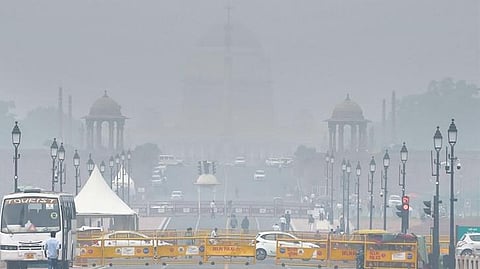

NEW DELHI: The national capital will experience “severe” air quality on the night of Diwali and it will worsen the following day, according to the Air Quality Early Warning System of SAFAR, an environment research body.
The programme, run by Union Environment Ministry, projected that the Air Quality Index (AQI) may turn “very poor” on October 24 and would worsen to “lower end of severe” on Diwali night and the next day.
Meanwhile, the AQI projection for the weekend is “poor” on Oct 23 and “very poor” on Oct 24 (during daytime). The AQI remained in the “poor” category on Saturday with an overall reading of 262, according to SAFAR data. The levels of PM 2.5 and PM 10 were recorded at 109 in the “very poor” and 228 in the “moderate” category, respectively.
“Air quality might improve slightly on October 26 evening onwards to the lower end of the ‘very poor” category as surface winds will pick up on October 26 and stubble transport level winds will slow down,” SAFAR predicted.
However, the phenomenon of AQI deterioration has been an annual affair during Diwali festivities, which start two days ahead of the festival with Dhanteras. According to government data for the last five years, the AQI index rises to the “severe” category as the festival evening approaches, and oscillates between the “poor” and “very poor” categories during the day.
Crackers are said to be a major contributor to this factor.
According to the data from the Central Pollution Control Board (CPCB), almost all monitoring stations across the national capital recorded AQI levels above 450 (severe) on Diwali night in 2021. However, the same AQI for Delhi on Diwali (day-time) has averaged 414 (severe) in 2020, 337 (very poor) in 2019, 281 (poor) in 2018 and 319 (very poor) in 2017.